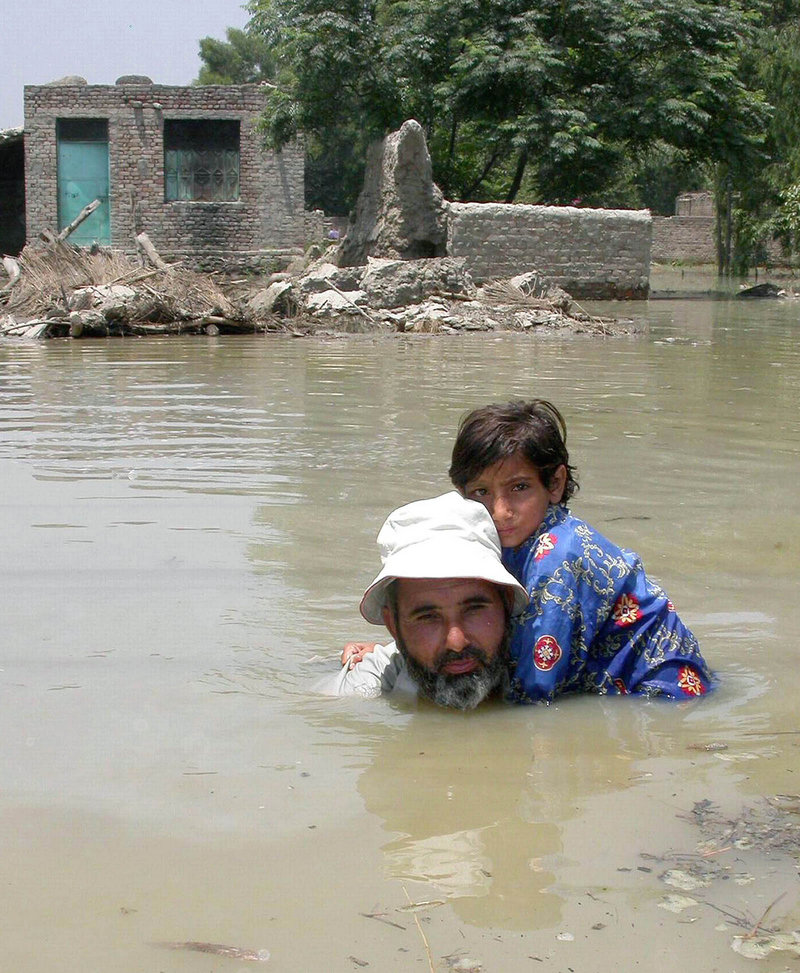CANCUN, Mexico – A scorching summer that killed thousands in Russia and exceptionally mild winters in the Arctic were among extreme weather events that have put 2010 on track to be one of the three hottest years on record, U.N. experts said Thursday.
The data from the World Meteorological Organization show that the last decade was the warmest ever, part of a trend that scientists attribute to man-made pollution trapping heat in the atmosphere.
Europeans and some Americans may think it was chilly this year, but their unusually cold winters were more than balanced by searing temperatures from Canada to Africa and the Indian subcontinent, said Michel Jarraud, WMO’s secretary-general.
Parts of Greenland, where glaciers are threatened with summer melt, had an annual average temperature of 5.4 degrees Fahrenheit (3 degrees Celsius) above normal, said the WMO’s preliminary report, released on the sidelines of a 193-nation U.N. conference on climate change.
Moscow had 33 consecutive days when the thermometer topped 86 degrees Fahrenheit (30 Celsius) and one day when it cracked 100 (38.2 Celsius), a new record. Russian officials ascribed 11,000 excess deaths to the heat wave and the peat fires that raged on the capital’s outskirts.
The WMO said the same extreme weather event that suffocated Russia also caused the floods that submerged a fifth of Pakistan, killing 1,700 people and displacing 20 million. The year also witnessed heavy rains that lashed Australia and Indonesia, flooding in Thailand and Vietnam, and drought in the Amazon basin and southwest China.
“The year 2010 is almost certain to rank in the top three warmest years since the beginning of instrumental climate records in 1850,” the WMO said.
Recent anecdotal evidence reinforces the science. Northern permafrost is thawing underneath buildings in Alaska, northern Canada and Siberia, causing them to tilt and crack. Children are swimming in normally frigid waters in the Arctic Ocean and American robins have appeared in Canada’s far north for the first time. Sea ice has retreated north of Russia, opening the possibility of a summer passageway for shipping.
Natural disasters or individual weather events cannot be directly traced to climate change, Jarraud said. But the long-term trend leaves little doubt the Earth is warming in ways that cannot be explained by nature and is almost certainly caused by man-made pollution that traps heat, he said.
“If you don’t include the human emissions you cannot reproduce what you observe,” he said. “That’s why we feel that we can attribute a significant part of what we observe to man-made emissions.”
Activists at the climate talks seized on the report to berate the negotiators.
“This is yet another warning from the planet that it is feeling the heat. Will governments take this warning and take the opportunity to act? Or will they continue to delay action and accept more warming, year after year?” said Wendel Trio of the Greenpeace environmental group.
Copy the Story Link
Send questions/comments to the editors.



Success. Please wait for the page to reload. If the page does not reload within 5 seconds, please refresh the page.
Enter your email and password to access comments.
Hi, to comment on stories you must . This profile is in addition to your subscription and website login.
Already have a commenting profile? .
Invalid username/password.
Please check your email to confirm and complete your registration.
Only subscribers are eligible to post comments. Please subscribe or login first for digital access. Here’s why.
Use the form below to reset your password. When you've submitted your account email, we will send an email with a reset code.